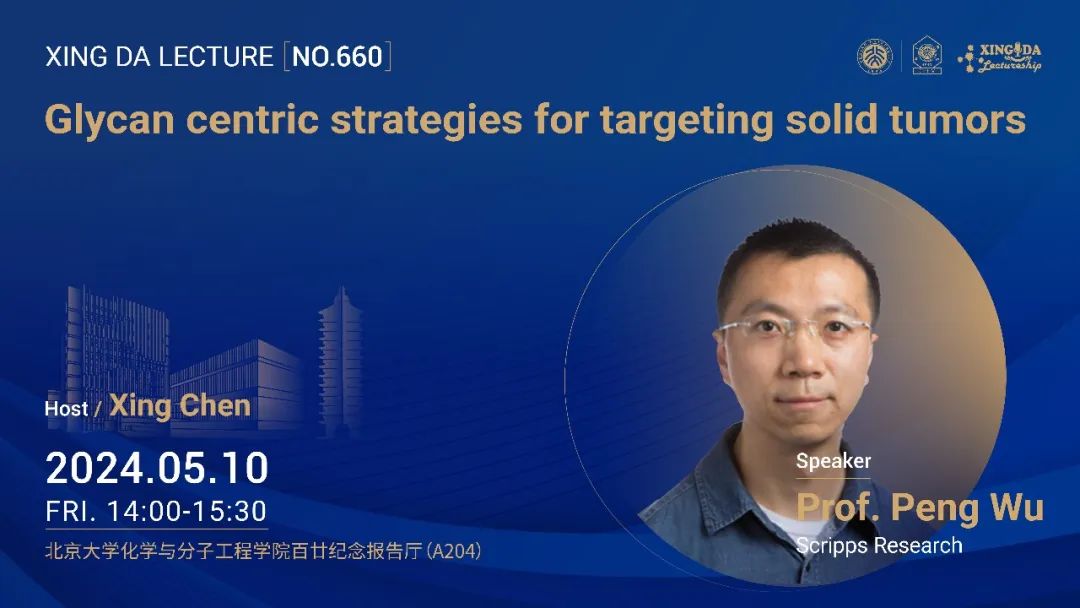
报告摘要
T-cell-based immunotherapies have demonstrated remarkable efficacy in the treatment of hematopoietic malignancies, but face significant challenges when targeting solid tumors. These hurdles include the immunosuppressive nature of the tumor microenvironment, heterogeneous antigen expression patterns, and the presence of immune checkpoints that are orthogonal to the established CTLA-4 and PD-1 pathways. In this talk, I will discuss our recent progress in developing glycan-centric approaches for the targeting of solid tumors.
报告人简介
Peng Wu is a Professor in the Department of Molecular Cell and Biology. Before joining the faculty at TSRI, Peng was an Associate Professor of Biochemistry and the Scientific Director of the Chemical Biology Core Facility at Albert Einstein College of Medicine, New York.
Peng received his doctorate from the Scripps Research Institute in 2005 under the guidance of Professor K. Barry Sharpless. From August 2005 to September 2008, Peng was a postdoctoral fellow in the group of Professor Carolyn R. Bertozzi at the University of California, Berkeley. There, he combined his interests in bioorthogonal chemistry and biotechnology by developing a method for site-specific modification of monoclonal antibodies using a genetically-encoded aldehyde tag. The research in the Wu laboratory integrates synthetic chemistry with glycobiology to explore the cellular and molecular mechanisms that control immune responses toward cancer and human pathogens.